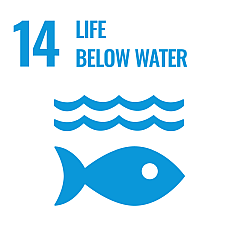Kohunga Kutai: a natural solution for a plastic problem.
Discover more >
Background reading, images, narrations, keywords and quizzes.
Connect with experts >
Insights into people, their careers and a chance to replay questions and answers from a LIVE web conference.
Explore the field trip videos >
Videos and more showcasing places, people, ideas and initiatives on this field trip.
Take the Google Earth for Web tour about Kohunga Kutai >
A virtual tour of the field trip with GIS mapping, 3D locations, images, daily diaries and video.
About this trip
Aquaculture is a growing industry in Aotearoa. It offers a healthy way to feed the world's growing population which can be achieved in a sustainable way. Plastic materials are commonly used in aquaculture however, which can be degraded over time, and can cause problems in the marine environment. This poses a challenge for our mussel farms which have typically used plastic socks to seed and grow kūtai (mussels). And we know that plastic in our ocean is a big problem.
Recently, western science and mātauranga Māori have come together to create natural solutions to the created problem of plastic. Innovation and diversity of knowledge aims to benefit mussel aquaculture and people, and enhance the mauri of our marine ecosystems.
Travel online with LEARNZ to Mahurangi Warkworth and:
- explore the importance of our marine ecology and the impact of plastic
- discover the science and mātauranga building a sustainable aquaculture industry
- meet the experts who are collaborating to innovate on positive solutions
- find ways to protect our coastal waters from plastic pollution.
Curriculum
This online field trip supports a STEM-based, cross curricular approach to teaching and learning. Participation encourages curiosity, citizen-science and student inquiry. Access curriculum links and resources plus a glossary.
This online field trip supports the United Nations Sustainable Development Goals (SDGs), especially Goal 14: LIFE BELOW WATER: To conserve and sustainably use the world's oceans, seas and marine resources.
This trip is supported by:










